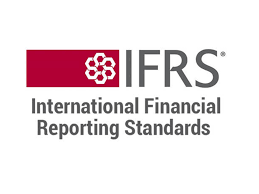ENGLISH for FINANCE
kursy języka angielskiego dla osób z branży finansowej
choose a course * select only subjects you are interested in * learn by modules
ARTICLES
ENGLISH for EXAMS
We help to develop and upgrade your Financial English language skills to the level that you will have no problems to understand the professional exam papers and only need to focus on solving the tasks.






Program kursów FINANCIAL ENGLISH oraz ACCOUNTING ENGLISH obejmuje szeroki zakres tematów dotyczących finansów i księgowości przedsiębiorstwa o dowolnym profilu oraz szeroko pojętego sektora finansowego. Podczas szkoleń koncentrujemy się na poszerzeniu specjalistycznego słownictwa z zakresu angielski finansowy, angielski księgowy oraz angielski biznesowy przy jednoczesnym rozwijaniu sprawności komunikacyjnych (mówienie, czytanie, słuchanie, pisanie) niezbędnych do prowadzenia codziennej działalności operacyjnej w środowisku międzynarodowym.
Kto potrzebuje kursy finansowo – księgowe?
- profesjonaliści pracujący we wszystkich instytucjach finansowych
- pracownicy działów księgowych firm różnej wielkosci
- analitycy biznesowi
- kontrolerzy finansowi
- pracownicy międzynarodowych firm
- osoby, które chcialyby poprawić jakość swoich umiejętności językowych
- członkowie zarządów korporacji
- kadra menedżerska
- właściciele przedsiębiorstw
- osoby poszukujące pracy w firmach mających kontakty z zagrancznymi partnerami
English has become the international language of business and finance. The ability to speak financial English on a good level is no longer an advantage but has started to be a “must-have” for every professional working in the present business environment. The financial sector including banking, insurance, stock exchange, investment funds and accountancy around the world use financial English as the primary language of communication and precision in documents, data and words are of critical importance.
International Reporting Standards (IFRS) and other international laws and regulations are created in English. The Association of Chartered Certified Accountants (ACCA) and Chartered Institute of Management Accounting (CIMA) are two largest and most prestigious professional worldwide accountancy organisations who provide training, organise qualification exams and issue internationally recognised certificates. Anyone who dreams about an international career in accountancy or financial sector must have their certificate. But all materials, courses, exams and documents are in English, therefore only people who know financial English and accounting English on a very high level can dream about a well-paid job in financial sector or accounting. Even the national stock markets also predominantly to use financial English vocabulary than their local language.
People working in the financial sector and accounting departments need financial English to be able to perform their daily duties including:
- preparing financial reports
- analysing financial data
- discussing graphs and trends
- using IFRS
- giving their opinions and suggesting solutions
- writing reports related to finance or accounting matters
- taking part in business meetings and negotiations
- presenting financial results
Every person who wants to work in a corporation or be a member of an important international organisation must possess the first-rate financial English language skills and be able to communicate with other accounting and finance sector professionals. It requires not only excellent Business English but also a vast range of financial English vocabulary and expressions. Some examples of financial English terms and abbreviations include M&A (Mergers and Acquisitions), NDA (Non-Disclosure Agreement), EBIDTA (earnings before interest, tax, depreciation and amortisation), ROI (return on investment) and the list continues.








